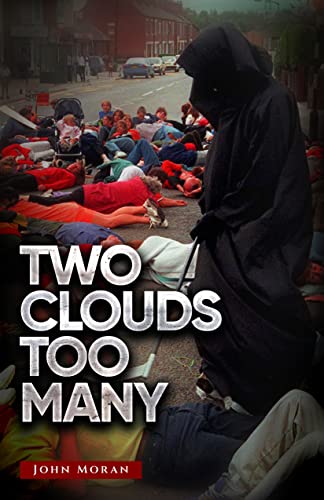How a working-class community took on a multinational and won
Jon Dale, Mansfield Socialist Party
The story of an ex-mining community of 9,000 taking on and beating a massive multinational corporation is told in this gripping account by John Moran, the local milkman, and a leader of the campaign.
On the Derbyshire-South Yorkshire border, Killamarsh’s two mines closed under Margaret Thatcher’s Tory government. It still had a chemical recycling plant, SARP – built on the site of another long-closed mine.
For years this plant blighted the village with fumes and smells. 60% of school children needed asthma inhalers. The schools (close to the plant) had ‘sniffer patrols’ checking if it smelt safe for children to play outside. There were high rates of cancer, miscarriages, birth defects, dying hedgerows and gardens.
After an explosion in 1986 there had been a big protest campaign. Local councillors (all Labour), MPs and the Environment Agency assured residents things would change – but nothing did.
So when an acid tank exploded on 14 May 1998, sending up a huge orange cloud and resulting in a village curfew, people were already angry. When a second toxic orange cloud went up on 30 May, it was ‘two clouds too many’.
The day after the second explosion, John noticed two or three people delivering leaflets. “The words leapt off the page… ‘after two huge explosions and incident after incident is it not time to do something?’”
John spoke to a leafleter, Alistair Tice from Sheffield Socialist Party, who said he wanted to help. From then on the Socialist Party, Alistair in particular, played a key role in the campaign.
The council called a public meeting with Health and Safety Executive and Environment Agency officials, once again trying to assure the packed hall that the situation could be left to them. When the meeting was finishing people remained unconvinced and angry. Alistair stood up and said: “They haven’t done it in the last twelve years, do you trust them again? The only way is that you, the people, will have to do it on your own, you will have to organise yourselves.”
200 people squeezed into a meeting two days later, which Alistair chaired. Residents Against SARP Pollution (RASP) was set up. John became press officer and Alistair, campaigns officer.
Over the following months, the relentless community campaign held protest after protest – over 200 times at the plant gates (and once on the roof) – frequently blocking the movement of tankers in and out, at the county council (taking over a council meeting), at the parent company Vivendi’s Paris HQ (taking over the directors’ boardroom). They were constantly on local radio and TV, and in newspapers.
Tactics that had been used in the miners’ strike and anti-poll tax campaigns, like telephone trees (pre-social media!), were used again to mount big rapid responses to the never-ending errors SARP kept making. Large weekly meetings discussed and planned events.
As community pressure grew, anonymous inside information led to more shocking revelations – rocket fuel stored in rusting drums, waste from Sellafield nuclear power plant dumped down old mineshafts, environmental regulations continually broken…
Meanwhile, Labour councillors stayed away (with one exception – until he too broke away shortly before becoming chair of the education committee). However, a lot of help was given by Labour MEP Ken Coates, including setting up a community inquiry as the official response was so inadequate. Disagreeing with Tony Blair’s New Labour, he was expelled from the party months later.
When local elections were held, the campaign decided to stand its own candidates. “Never had local elections in Killamarsh created such interest… this was the first time in many years that [Labour] had been opposed.” Two RASP members were elected to the parish council.
After 18 months of relentless campaigning, Vivendi (now called Veolia) finally announced it was closing the incinerator – a tremendous victory.
John remarks how ordinary people like care workers, checkout operators and caretakers grew in confidence during the campaign to challenge company directors, government ministers, official agencies and councillors. The book gives a glimpse of how working-class people could quickly learn to run society in its interests, if given the opportunity.
This book should be read by anyone living near a pollution site. The key lesson is the importance of acting quickly when public mood is at its height and building a mass campaign which democratically decides its actions.
It should also be read by environmental activists to see how mass community support can be achieved. And how working-class communities can be mobilised to win.
- Two Clouds Too Many by John Moran, published by Amazon, £10.50, available at leftbooks.co.uk







